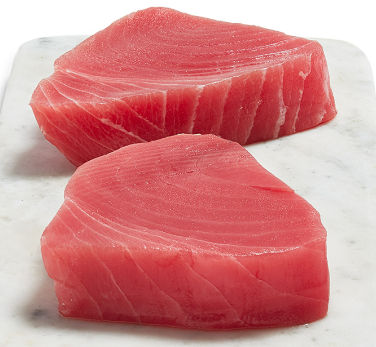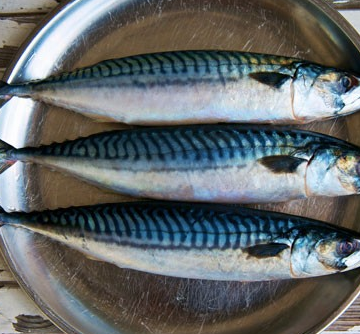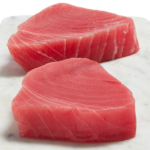As a dog owner, it’s natural to want to share everything with your furry friend, including your favorite snacks. Tuna is one such food that many of us enjoy, but can dogs eat tuna? This question has been a topic of debate among pet owners for quite some time now. While some say that tuna can be a healthy addition to a dog’s diet, others warn of potential risks associated with it.
As a responsible pet owner, it’s essential to understand the facts and make informed decisions about what foods to feed your furry friend. In this ultimate guide, we’ll dive into the topic of whether dogs can safely eat tuna.
We’ll explore the benefits and risks associated with feeding your dog tuna, and provide you with all the information you need to make an informed decision about whether or not tuna is a good addition to your dog’s diet.
So, let’s get started!
Nutritional benefits of tuna for dogs
Tuna is a popular seafood that is rich in nutrients, including protein, omega-3 fatty acids, and vitamins. These nutrients can provide several health benefits for your dog. Protein is essential for maintaining strong muscles, while omega-3 fatty acids are known to help reduce inflammation and improve heart health. Additionally, vitamins A, B12, and D found in tuna can help support your dog’s immune system, aid in healthy digestion, and keep their coat shiny and healthy.
While tuna can provide numerous health benefits for your furry friend, it’s important to remember that it should only be fed in moderation and as part of a balanced diet. Too much tuna can lead to health problems, including mercury poisoning, which we’ll discuss in detail later in this article.
Risks of feeding tuna to dogs
While tuna can provide several nutritional benefits to your dog, there are some risks associated with feeding it to them. One of the primary concerns is the potential for mercury poisoning. Tuna is a large fish that can contain high levels of mercury, which can be toxic to dogs when consumed in large quantities. Symptoms of mercury poisoning in dogs can include loss of coordination, muscle weakness, and seizures.
Another potential risk associated with feeding tuna to dogs is the possibility of an allergic reaction. While allergies to fish are not common in dogs, some dogs may experience an adverse reaction to tuna. Signs of an allergic reaction can include itching, hives, and swelling.
It’s also important to note that canned tuna can contain added salt, which can be harmful to dogs. Too much salt can lead to dehydration, electrolyte imbalances, and even kidney damage.
Types of tuna safe for dogs
Not all types of tuna are safe for dogs to consume. The best type of tuna to feed your dog is fresh, cooked, and boneless in the form of steaks. This type of tuna is the safest and healthiest option for dogs as it contains fewer contaminants and is less likely to cause digestive problems.
Canned tuna can also be fed to dogs, but it’s important to choose the right type. Look for canned tuna that is packed in water rather than oil, as oil can add unnecessary calories and fat to your dog’s diet. Additionally, make sure to choose canned tuna that is low in sodium or has no added salt.
Preparing tuna for your dog
Before feeding tuna to your dog, it’s essential to prepare it correctly. Start by removing any bones or skin from the fish. Bones can be a choking hazard and can also cause digestive problems if ingested. Next, cook the tuna thoroughly to kill any potential bacteria or parasites that could be harmful to your furry friend.
You can prepare tuna for your dog in several ways, including baking, grilling, or boiling. Avoid adding any seasonings, spices, or oils, as they can be harmful to your dog’s health. Plain, cooked tuna is the safest and healthiest option for your furry friend.
Serving size and frequency
When feeding your dog tuna, it’s important to remember to do so in moderation. Too much tuna can lead to health problems, including mercury poisoning and digestive issues. A general rule of thumb is to feed your dog tuna in small amounts as an occasional treat rather than a regular part of their diet.
The recommended serving size for dogs is based on their weight. As a general guideline, a small dog weighing 10 pounds or less can have up to one ounce of tuna, while a larger dog weighing 50 pounds or more can have up to five ounces. However, it’s important to consult with your veterinarian to determine the appropriate serving size for your furry friend based on their individual needs and dietary requirements.
Alternatives to tuna for dogs
While tuna can provide several nutritional benefits to your furry friend, there are many other healthy and safe foods that you can feed them. Some great alternatives to tuna include salmon, sardines, chicken, beef, and turkey. These foods are all high in protein and essential nutrients and can provide numerous health benefits for your pooch.
It’s also essential to remember that dogs require a balanced diet that includes a mix of protein, carbohydrates, and healthy fats. Consult with your veterinarian to determine the best diet for your furry friend based on their age, weight, and overall health.
Signs of tuna toxicity in dogs
If your dog consumes too much tuna, they may experience symptoms of mercury poisoning. Signs of tuna toxicity in dogs can include loss of coordination, muscle weakness, and seizures.
If you notice any of these symptoms in your dog, contact your veterinarian immediately. They can perform a blood test to determine if your dog has been exposed to high levels of mercury and provide treatment if necessary.
FAQs about tuna and dogs
1. Can dogs eat raw tuna?
No, it’s not safe to feed dogs raw tuna as it can contain harmful bacteria and parasites that can make your furry friend sick.
2. Can dogs eat tuna from a can?
Yes, dogs can eat tuna from a can, but it’s important to choose the right type and prepare it correctly. Look for canned tuna that is packed in water and low in sodium. Additionally, make sure to remove any bones or skin from the fish before feeding it to your furry friend.
3. Can tuna be a part of a dog’s regular diet?
While tuna can provide several health benefits to your furry friend, it should only be fed in moderation and as part of a balanced diet. Too much tuna can lead to health problems, including mercury poisoning and digestive issues.
4. What are some healthy alternatives to tuna for dogs?
Some great alternatives to tuna include salmon, sardines, chicken, beef, and turkey. These foods are all high in protein and essential nutrients and can provide numerous health benefits for your furry friend.
Conclusion: Can dogs eat tuna?
In conclusion, tuna can be a healthy addition to your dog’s diet when fed in moderation and prepared correctly. Fresh, boneless, and cooked tuna is the safest and healthiest option for your furry friend, while canned tuna should be chosen carefully to avoid added salt and oil.
However, it’s essential to remember that too much tuna can lead to health problems, including mercury poisoning and digestive issues. Additionally, some dogs may be allergic to fish, so it’s important to monitor your furry friend for any adverse reactions.
If you’re unsure about whether or not to feed your dog tuna, consult with your veterinarian. They can provide you with all the information you need to make an informed decision about what foods are safe and healthy for your furry friend.







